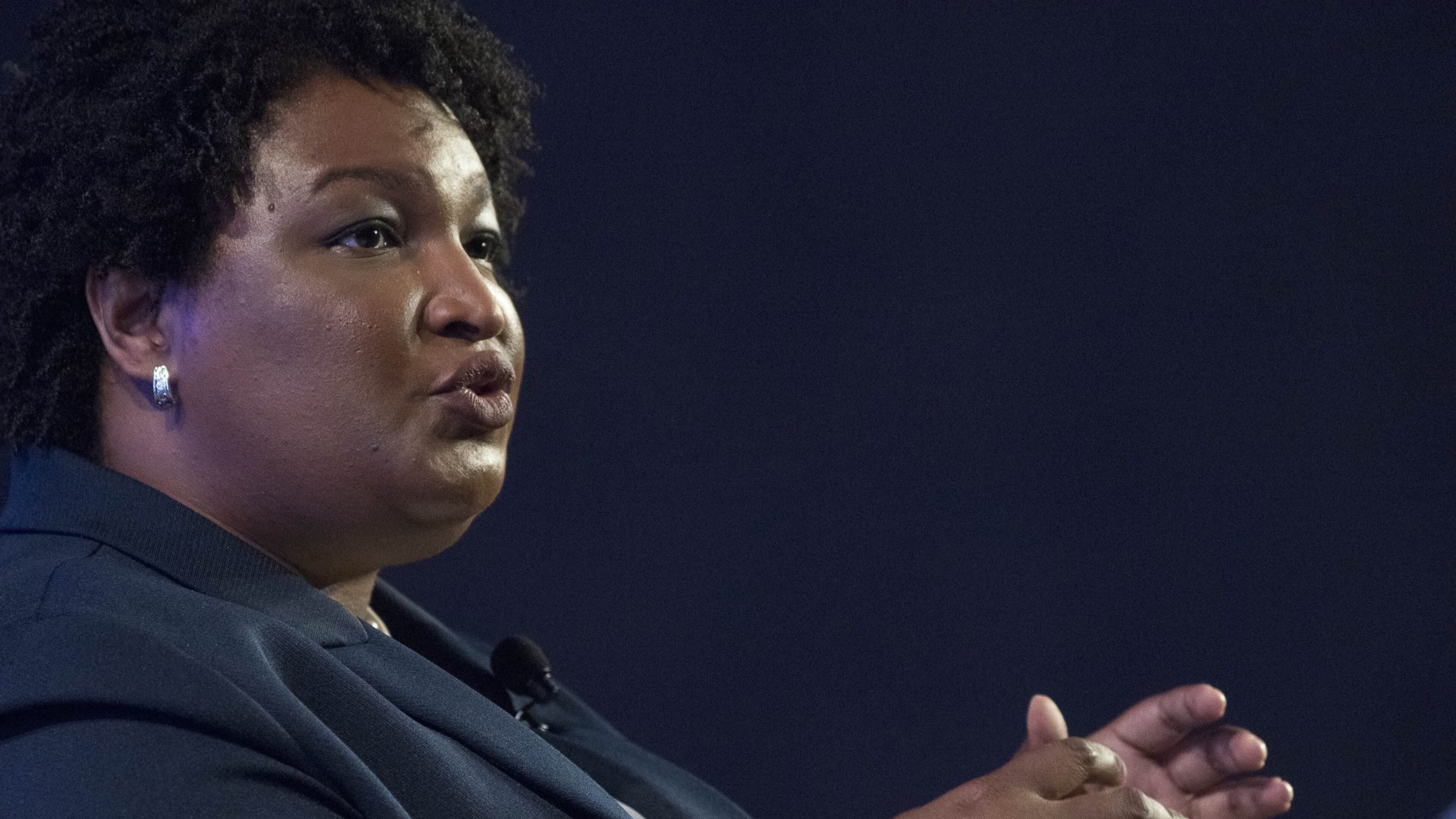Abrams’ health care plan centers on Medicaid expansion for poor

Democrat Stacey Abrams on Monday announced her plans for health care should she win the governor’s seat in Georgia, and they weren’t just to expand Medicaid.
Abrams promised to explore a program to stabilize health insurance premiums, to offset some policyholders’ soaring insurance costs. She also invoked Georgia’s high death rate for pregnant women, new mothers and babies, and said she would look to expand access to doctors for them, especially in rural areas. She vowed to uphold the state’s protections for pre-existing conditions under federal health law. And she affirmed her support for access to abortion.
The most detailed part of her vision, however, focuses on expanding Medicaid to cover the state’s poorest adults, including those who earn up to about $16,750 a year for a single person.
“Most fundamental is the expansion of Medicaid in the state of Georgia,” Abrams said. “And you’ll hear me talk about this ad nauseam because it is the only answer to Georgia’s challenges.”
Healthcare is a top issue on voters minds this election season. The latest Atlanta Journal-Constitution/Channel 2 Action News poll of likely voters showed that it came in second only to the state economy on a list of issues Georgians said would determine their vote.
Abrams made her announcement standing outside of Grady Memorial Hospital. More than half of the facility’s patients are on either Medicare or Medicaid, and another 24 percent have no insurance at all. Republican candidate Brian Kemp has not yet announced a detailed health care policy plan.
Like Kemp, Abrams proclaimed the need to expand internet services to rural Georgia, in the hopes that it will someday spread the availability of telehealth as well as economic opportunity. Neither candidate has fleshed out details of whether they mean getting affordable broadband internet to the home of every single Georgian, or how they would pay for that enormously expensive undertaking.
Also like Kemp, Abrams supports some sort of incentive to lure doctors and other care providers to move to rural areas. Abrams’ emphasis was on maternal and infant mortality, both of which are sky-high in Georgia.
Abrams would work to support the exchange market, where federal subsidies are supposed to shore up affordable prices. Right now Georgia prices skyrocket for those ineligible for subsidies. As a few other states have done, Abrams would look to see if the state could devise a plan the federal government would approve to re-mold Georgia’s portion of a money in a way that lowers some of those premium costs.
And underlining perhaps her most significant difference from Kemp on health care, Abrams strongly supports Medicaid expansion, something the GOP leaders of Georgia have declined to do since the inception of the Affordable Care Act, known as Obamacare. Expansion would fill a coverage gap that was created when part of the ACA was struck down.
The Abrams team is betting Medicaid expansion is a winning issue. According to the AJC's January poll, 73 percent of registered voters in the state support expansion.
As an economic matter, Medicaid expansion would insure 473,000 currently uninsured Georgians, according to an analysis by the Urban Institute, and cost the state budget $246 million a year.
It would also draw down matching federal funds, about $3 billion into the state of Georgia.
Abrams says the roughly $8 million in federal money per day infused into Georgia’s health sector “would cover nearly 500,000 more Georgians, save rural hospitals, and generate 56,000 new jobs across the state.” Moreover, Abrams maintains that the state can afford the $246 million or more.
“We have that available in our current budget,” Abrams said Monday. “We simply have, unfortunately, reallocated it for other priorities and my priority is access to health care.”
Kemp, by contrast, rejects the government program as a solution and the tax spending that comes with it.
He, too acknowledges the siphoning of health care providers from rural Georgia, but does not support pouring tax dollars into Medicaid. His aides point to varying estimates of what the state match would be, including one prepared for state legislators that puts the state match at as much as over $400 million. He says funding Medicaid expansion would take state dollars from priorities such as public safety or education.
OUR REPORTING
It’s a busy election year, and The Atlanta Journal-Constitution is keeping the spotlight on the leading candidates for governor, Republican Brian Kemp and Democrat Stacey Abrams. Stories we’ve done include a look at Kemp’s fundraising among industries he regulates and Abrams’ tax difficulties. We are also writing about each candidates plans on various issues. Look for more at ajc.com/politics as the state heads for the general election on Nov. 6.




